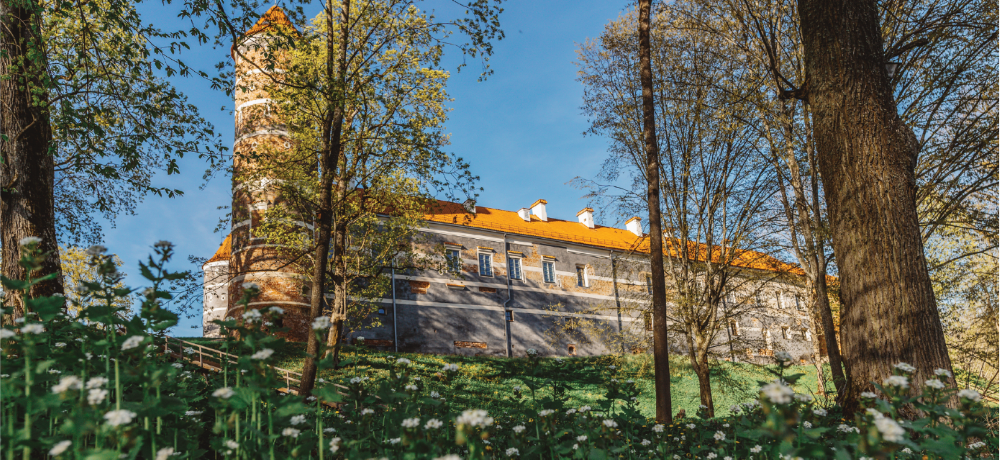Creative workshop for the Nordic Baltic Academy of Architecture network students
Apply here
Application deadline: June 5, 2022
Workshop leaders:
-Marius Pranas Šaliamoras, architect, Dean of Vilnius Faculty, Vilnius Academy of Arts (VAA)
– Aušra Siaurusaitytė Nekrošienė, architect, head of the Architecture department at VAA
– dr Marius Daraškevičius, architect, director of Panemunė Castle, part-time lecturer at the department of History and Theory (VAA)
-other external speakers.
Dates: July 27 – August 3, 2022
(arrival Wednesday, departure the following Wednesday)
Where: Vilnius, Vilnius Academy of Arts
ECTS: 5
Level: BA & MA
Seats: 17

Panemune Castle
Funding:
Grant:
Once accepted, students will be able to apply for NBAA travel grant (330 euros per person from outside Lithuania, Icelandic participants 660 EUR), students are encouraged to book the most economical and ecological means of transport. Grant application form here.
Accommodation: students will be accommodated for free at the VAA dormitory, situated in the very heart of the Vilnius old town (Latako St. 2, Vilnius).
Meals: Lunches daily on 28 July – 2 August, two dinners and a barbecue will be arranged for free by the VAA. Students are expected to take care of breakfast and other meals by themselves.
Please note that the Nordplus funding can only be allocated to the mobile students (those, whose home country is other than Lithuania). Students from Lithuania would not be provided with accommodation, even though they would be invited to participate in all other activities (lunches, dinners, trips) for free.
Summer course description
This is the first NBAA/ Nordplus summer course, which will be hosted by the Vilnius Academy of Arts, in Vilnius (Lithuania).
Over the course of 7 days students will be working on the concept of green architecture, specifically researching the below:
- How to meet the need of the urban population to have a garden in the city;
- Integration of nature in the urban environment;
- Reconciliation of private and public interest in green architecture objects.
Keywords: sustainability, green growth, community co-work, local contexts, local
governance, lessons from 20th century history, challenges of 21st century.
The creative workshop will examine the formation of a new urban environment, the transformation and adaptation of existing buildings and spaces to create green architecture. The possibility of transforming the existing street of massive gardens (with narrow, mono-functional, deficiencies of public spaces, etc.) into a full-fledged urban structure of green architecture, friendly nature and man is examined.
The phenomenon of collective gardens is mainly associated with the Soviet period and the situation of economic deprivation at that time.
The question is: Can new (not necessarily) collective gardens emerge: a place for the city residents to spend their free time, a space to replace the park, an informal horticultural farm and similar objects and spaces?
One of the major challenges of the contemporary world is to reduce carbon footprint, how to create solutions which are sustainable and green in a long run and how to create urban environments that are addressing these problems collectively in local contexts. How to examine, research and look at these matters is in every architecture- and design schools’ curricula today. Most of the member schools of NBAA schools offer studio-based education, which means comprehensive studio practice is the key element of mostly 5- year architecture and urban studies programmes. The studio work focuses on project work, integrating academic knowledge and applied skills. A low faculty to student ratio is a cornerstone of individual development and collaboration. Basing on this information, it is clear that bringing students together from different NBAA schools means that their approach to contemporary architecture education is similar and they all have a solid foundation for completing the workshop.
